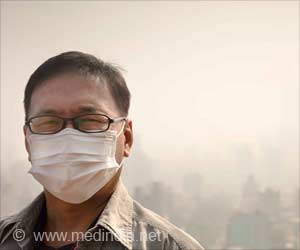New study has suggested that a quarter of all participants revealed significantly elevated anxiety and depression, exacerbated by lockdown and isolation.

‘New study has suggested that a quarter of all participants revealed significantly elevated anxiety and depression, exacerbated by lockdown and isolation.’





The study from psychologists at the University of Bath is the first study to substantiate extensive media debate that health anxieties were heightened as a result of the pandemic, and it is also the first study to indicate that those in vulnerable groups are clinically more distressed as a result. Nearly 15% reached clinical levels of health anxiety, which reflects that health-related anxiety has become distressing and is likely to be causing preoccupation and disruption to normal activities. Health anxiety focuses on the fear of having or contracting a serious illness despite medical reassurance.
Lead author, Dr Hannah Rettie from the University of Bath's Department of Psychology explains: "The COVID-19 pandemic has caused global uncertainty which has had a direct, detrimental effect on so many people across the UK and around the world. People have been unsure when they would see relatives again, job security has been rocked, there is an increased threat to many people's health and government guidance is continuously changing, leading to much uncertainty and anxiety.
What our research focused in on is how some individuals have struggled to tolerate and adapt to these uncertainties - much more so than in normal times. These results have important implications as we move to help people psychologically distressed by these challenging times in the weeks, months and years ahead."
Deeper analysis reveals that those in vulnerable groups - classified according to the UK government 'vulnerable' categories - report twice the rates of health-related anxiety than the general population. Those who identified themselves in these categories were on average more anxious and depressed, with anxiety and health anxiety specifically significantly higher than in non-vulnerable groups. Those who are in the vulnerable group are at risk both physically and psychologically.
Advertisement
The researchers suggest that clinicians could use their findings to target intolerance of uncertainty as part of standard psychological therapies, focussing on developing coping skills to reduce distress. This could also be extended to public resources, drawing out individuals' abilities to manage uncertainty and reduce reliance on less effective coping strategies, for example denial or self-blame.
Advertisement
We are also now better informed as to the likely number of the population that are experiencing clinical levels of health-related anxiety. This may serve to normalise distress at this difficult time and promote the uptake of emerging models of COVID-19 related distress for those who may need support at this time of uncertainty."
"While this research offers important insights into how common distress was during 'lockdown', it is important to stress that anxiety is a normal response to an abnormal situation such as a pandemic. It can be helpful to mobilise precautionary behaviours such as hand-washing and social distancing.
Yet for many, as reflected in our findings, anxiety is reaching distressing levels and may continue despite easing of restrictions - it is essential we create service provision to meet this need, which is likely to be ongoing, particularly with current expectations of a second wave. Further longitudinal research is needed to establish how this may change over time."
Source-Eurekalert










